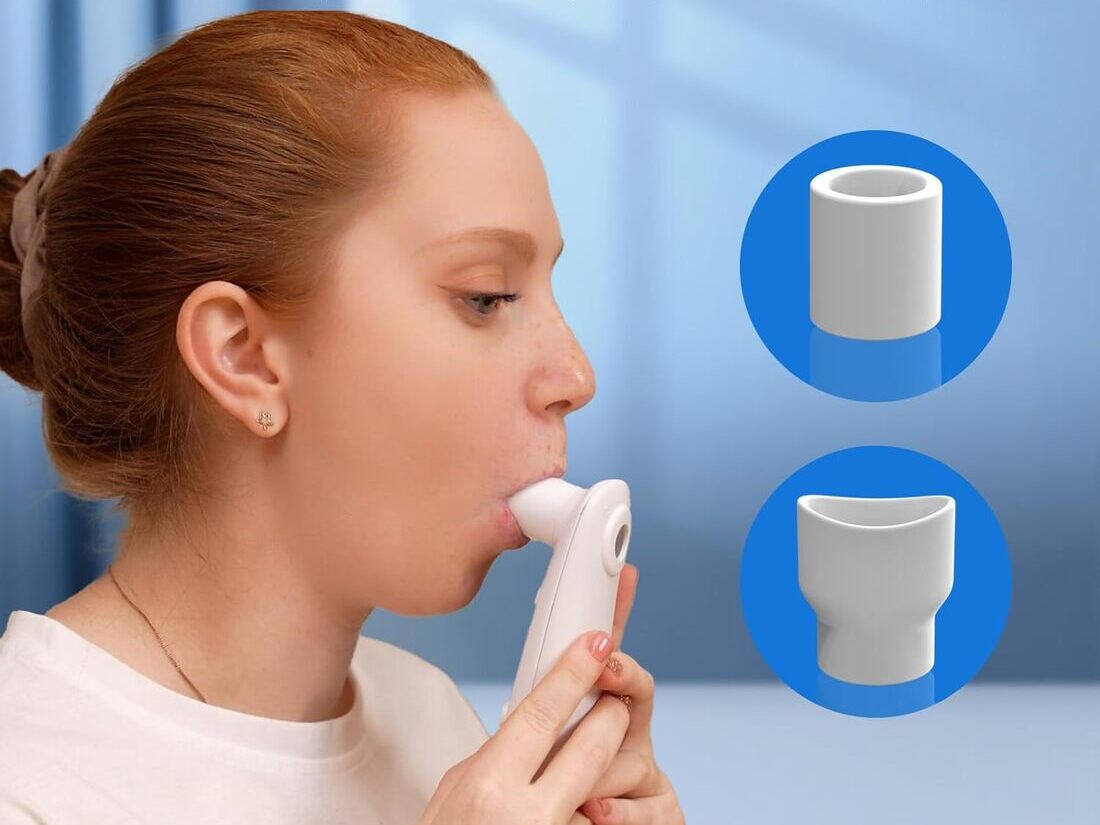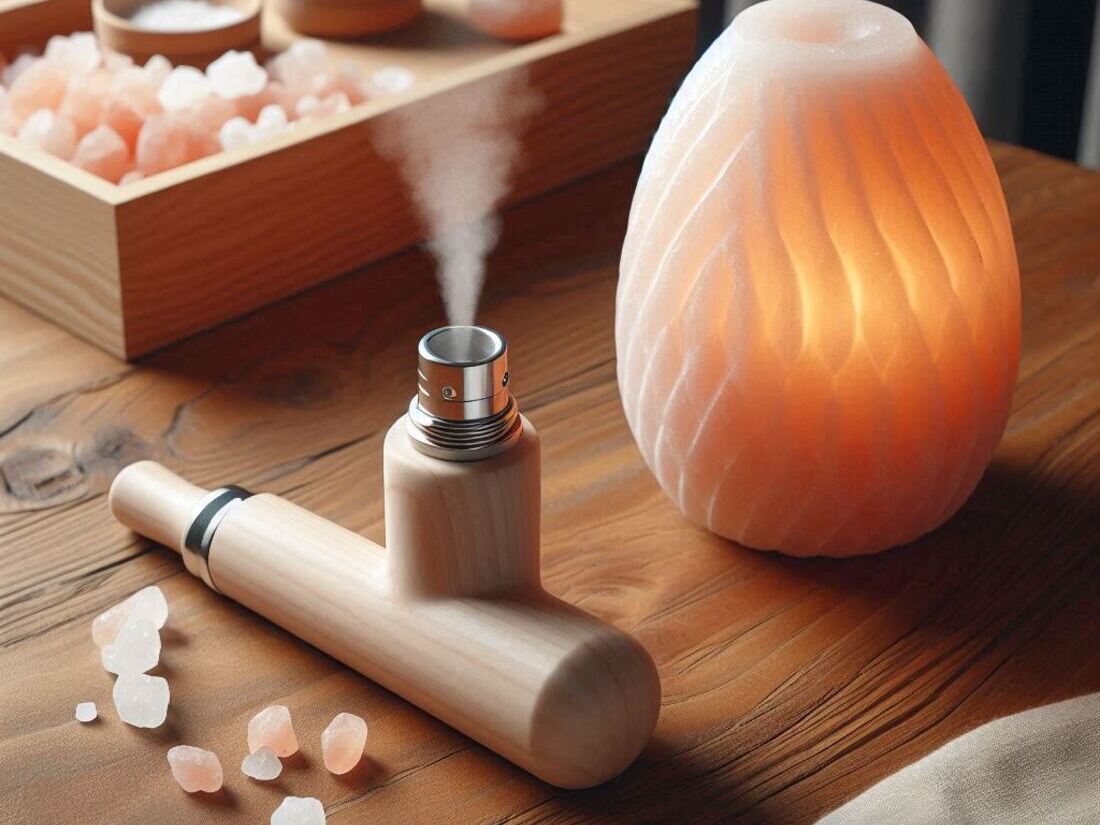Imagine a world where breathing feels effortless, where each inhale brings a refreshing wave of clean air, and congestion is a distant memory.
For many people struggling with lung conditions like asthma, chronic obstructive pulmonary disease (COPD), and even allergies, this may seem like a utopia.
But what if there was a natural therapy that could help you breathe easier and improve your lung health?
Enter salt therapy, also known as halotherapy.

Salt therapy involves inhaling dry salt particles in a controlled environment.
This unique approach has been gaining popularity as a complementary treatment for respiratory issues.
But is it right for you?
This blog dives deep into the world of salt therapy, exploring its potential benefits, safety considerations, and whether it can be a valuable addition to your lung health journey.
Key Takeaways
- Salt therapy is a natural approach to lung health that involves inhaling dry salt particles in a controlled environment.
- While research is ongoing, salt therapy may offer benefits like reduced inflammation, easier mucus clearance, and improved breathing for those with lung conditions.
The Struggles of Breathing: Understanding Lung Conditions

Our lungs are the workhorses of our respiratory system, taking in life-giving oxygen and releasing carbon dioxide.
However, various factors can compromise lung function, leading to a variety of challenges:
- Asthma: This chronic inflammatory condition causes airway narrowing, leading to wheezing, coughing, shortness of breath, and chest tightness.
- COPD: This progressive lung disease makes it difficult to breathe due to damaged airways and inflammation. Symptoms include coughing, shortness of breath, and mucus production.
- Allergies: Exposure to allergens like pollen or dust mites can trigger an inflammatory response in the airways, causing congestion, coughing, and difficulty breathing.
Living with a lung condition can significantly impact your quality of life.
While conventional medications are crucial for managing these conditions, some people seek natural alternatives to complement their treatment plan.
Salt Therapy: A Breath of Fresh Air (Literally)

Salt therapy has been used for centuries for its potential health benefits.
Here’s a breakdown of how it works:
- Saline Environment: Salt rooms are created to replicate the natural environment of salt caves. Microscopic salt particles are dispersed into the air using a special device (halogenerator).
- Inhalation: During a salt therapy session, you simply relax and breathe in the salt-infused air. These tiny particles are inhaled deep into the respiratory system.
- Potential Benefits: Salt therapy is thought to offer several benefits for lung health, including:
- Reducing inflammation in the airways
- Thinning mucus, making it easier to clear
- Reducing congestion
- Easing coughs
- Boosting the immune system (limited research)
Before You Dive In: Safety Considerations for Salt Therapy
While generally considered safe, there are some things to keep in mind:
- Consult your doctor: Before trying salt therapy, especially if you have a pre-existing lung condition or are using a nebulizer, consult your doctor to ensure it’s right for you.
- Not a replacement for medication: Salt therapy is a complementary therapy, not a replacement for your prescribed medications.
- Limited scientific evidence: More research is needed to fully understand the long-term effects of salt therapy for lung conditions.
- Potential side effects: While uncommon, some people may experience mild irritation in the nose, throat, or eyes after a salt therapy session.
Who Can Benefit from Salt Therapy?
While more research is needed, salt therapy may be beneficial for individuals with:
- Asthma
- COPD
- Allergies
- Cystic fibrosis
- Sinusitis
- Bronchitis
Is Salt Therapy Right for You?
The decision to try salt therapy is a personal one.
If you’re interested in exploring natural approaches to complement your lung health management plan, discuss it with your doctor.
They can help you weigh the potential benefits and risks and determine if salt therapy is a suitable option for you.
Frequently Asked Questions (FAQs) on Salt Therapy
Q: What does a salt therapy session look like?
A: Salt therapy sessions typically last 30-45 minutes. You’ll relax in a comfortable chair in a salt room while inhaling the salt-infused air. Salt rooms can be individual or group settings.
Q: Are there any home salt therapy kits available?
A: While there are home salt therapy devices available, they may not replicate the controlled environment and concentration of salt particles found in salt rooms. Consult your doctor before using any home salt therapy products.
Q: How often should I do salt therapy sessions?
A: The frequency of salt therapy sessions can vary depending on your individual needs and condition. It’s best to discuss this with your doctor to determine a personalized plan.
Top-Selling Products with High Reviews for Salt Therapy

While the blog emphasizes consulting a doctor before using home salt therapy products, here are two well-reviewed options to consider if your doctor approves.
Plant Therapy Pink Himalayan Salt Inhaler: This inhaler comes with pink Himalayan crystal salt and is highly regarded for its potential to improve respiratory health. It has garnered high ratings and is a popular pick among customers looking for natural relief options. (Note: Affiliate Link)
SALKING 2-in-1 Ultrasonic Essential Oil Diffuser & Himalayan Salt Lamp: An innovative product that combines the benefits of aromatherapy with Himalayan salt therapy. It has received high ratings and is praised for its dual functionality, providing both a soothing atmosphere and potential health benefits. (Note: Affiliate Link)
Remember: These products are well-reviewed and have been purchased frequently in the past month, indicating their popularity and user satisfaction. Remember to consult with a healthcare professional before starting any new health regimen.
Complementary Practices for Optimal Lung Health
Salt therapy can be a valuable addition to your lung health toolbox, but it’s not a magic bullet. Here are some additional practices to consider:
- Medication adherence: Taking your medication as prescribed by your doctor is crucial for managing lung conditions.
- Smoking cessation: Smoking is a major risk factor for lung disease. If you smoke, quitting is the single best thing you can do for your lung health.
- Air quality management: Minimize exposure to air pollutants by staying indoors on high pollution days and using air purifiers.
- Exercise regularly: Regular physical activity strengthens your lungs and improves overall health.
- Manage stress: Chronic stress can worsen respiratory symptoms. Relaxation techniques like yoga or meditation can be beneficial.
The Road to Healthy Lungs: It’s a Journey, Not a Destination

There is no one-size-fits-all approach to lung health.
By working with your doctor, exploring complementary therapies like salt therapy when appropriate, and adopting healthy lifestyle habits, you can take control of your lung health and breathe easier.
Remember, consistency is key.
Make healthy choices a part of your daily routine and enjoy the journey towards a healthier, more vibrant life.
Citations
- American Lung Association: https://www.lung.org/
- Halotherapy—An Ancient Natural Ally in the Management of Asthma: A Comprehensive Review
- What Is Halotherapy?
Disclaimer:
The information in this blog is for educational purposes only and should not be construed as medical advice. Always consult with a healthcare professional for personalized guidance on managing your lung health and the suitability of salt therapy for your individual needs.



